

Also by Alan Watts
Behold the Spirit
Beyond Theology
The Book
Cloud-Hidden, Whereabouts Unknown
Myth and Ritual in Christianity
Nature, Man and Woman
Psychotherapy East and West
The Spirit of Zen
The Supreme Identity
Tao
This Is It
The Way of Zen
The Wisdom of Insecurity
Also by Alan Watts from New World Library
Does It Matter?
Eastern Wisdom, Modern Life
In My Own Way
Still the Mind
What Is Tao?
What Is Zen?


Copyright 1962 by Pantheon Books, a division of Random House, Inc.
Copyright 2013 by Joan Watts and Anne Watts
Introduction copyright 2013 by Daniel Pinchbeck
Originally published in 1962 by Pantheon Books
All rights reserved. This book may not be reproduced in whole or in part, stored in a retrieval system, or transmitted in any form or by any meanselectronic, mechanical, or otherwithout written permission from the publisher, except by a reviewer, who may quote brief passages in a review.
Text design by Tona Pearce Myers
Library of Congress Cataloging-in-Publication Data
Watts, Alan, 19151973.
The joyous cosmology : adventures in the chemistry of consciousness / Alan W. Watts ; with a new introduction by Daniel Pinchbeck ; foreword by Timothy Leary, PhD, and Richard Alpert, PhD.Second edition.
pages cm
Originally published in 1962 by Pantheon Books.
Includes bibliographical references.
ISBN 978-1-60868-204-1 (pbk. : alk. paper)ISBN 978-1-60868-205-8 (ebook)
1. Consciousness. 2. Hallucinogenic drugs. I. Title.
BF320.W3 2013
154.4dc23 2013004835
First printing of second edition, May 2013
ISBN 978-1-60868-204-1
Printed in the USA on 100% postconsumer-waste recycled paper
 New World Library is proud to be a Gold Certified Environmentally Responsible Publisher. Publisher certification awarded by Green Press Initiative.
New World Library is proud to be a Gold Certified Environmentally Responsible Publisher. Publisher certification awarded by Green Press Initiative.
www.greenpressinitiative.org
10 9 8 7 6 5 4 3 2 1
To the people of Druid Heights
CONTENTS
T HE J OYOUS C OSMOLOGY inevitably sends me into a state of poetic euphoria and anarchistic delight. Alan Watts wrote this wonderful little book in the early 1960s: that long-lost moment of innocence when psychedelic substances like LSD and psilocybin were starting to permeate the culture of the modern West but no final decision had yet been made on their utility or fateor their legality. It was a time when a handful of philosopher-poets had the chance to muse on the power of these compoundsto give some impression of the new world of consciousness which these substances reveal, Watts wrote.
Reading it again, I cant help but recall my first forays into the soul-unfolding and mind-opening qualities of the visionary plants and chemical catalysts. Those first trips unmasked the brittle delusions of our current culture and revealed that deeper dimensions of psychic reality were available for us to explore. Watts is such a fluid stylistsuch a master of evanescent, evocative, pitch-perfect prosethat it is easy to gloss over or to entirely miss the explosive, radical, even revolutionary core of his message and meaning: the Western ego, the primacy of self that our entire civilization is intricately designed to shore up and protect, simply does not exist.
When one uses the magnifying glass or microscope provided by one of a number of chemical compounds that, Watts cannily noted, do not impart wisdom in itself but provide the raw materials of wisdom, one finds nothing fixed, stable, permanentno essence. Only relationship, pattern, flow. Wattss psychedelic journeys provided experiential confirmation of the core teachings of Eastern metaphysics: that the Tao is all, that consciousness is one without a second, that there is no doing, only infinite reciprocity and divine play.
This book retains the freshness of precocious notebook jottings. It also, almost accidentally, gives a beautiful sense of life in the dawn of the psychedelic era on the West Coast, when groups of friends would gather in backyards beside eucalyptus groves to explore together, with the gentle humor of wise children, the infinite within. All of us look at each other knowingly, for the feeling that we knew each other in that most distant past conceals something elsetacit, awesome, almost unmentionablethe realization that at the deep center of a time perpendicular to ordinary time we are, and always have been, one, Watts wrote. We acknowledge the marvelously hidden plot, the master illusion, whereby we appear to be different.
Over the past forty or so years, we have suffered from the cultural delusionput forth by a corporate media and government working overtime to keep consciousness locked up, as our industries suck the lifeblood from our planetthat the psychedelic revolution of the 1960s was a failure. Revisiting Wattss Joyous Cosmology reminds me that the psychedelic revolution has barely begun. The journey inward is the great adventure that remains for humanity to take together. As long as we refuse to turn our attention to the vast interior dimensions of the PsycheThe Kingdom of God is withinwe will continue to exhaust the physical resources of the planet, cook the atmosphere, and mindlessly exterminate the myriad plant, animal, and insect species who weave the web of life with us.
When on psychedelics, we tend to find that each moment takes on archetypal, timeless, mythological significance. At one point, Watts and his friends enter into a garage full of trash, where they collapse with helpless laughter. The culmination of civilization in monumental heaps of junk is seen, not as thoughtless ugliness, but as self-caricatureas the creation of phenomenally absurd collages and abstract sculptures in deliberate but kindly mockery of our own pretensions. Our civilization mirrors the defended defensiveness of the individual ego, which fortifies itself against the revelation of interdependence and interconnectivity, the plenitude and emptiness of the void.
We are lucky to have Wattss testament of his encounters: The Joyous Cosmology is a carrier wave of information and insight, which has lost none of its subtlety, suppleness, or zest. It is also an expression of a larger culture process, one that is unfolding over the course of decades, through a War on Drugs that is secretly a war on consciousness.
Dr. Thomas B. Roberts, author of The Psychedelic Future of the Mind, among other works, has proposed that the rediscovery of entheogens by the modern West in the mid-twentieth century was the beginning of a second Reformation, destined to have repercussions at least as profound as those of the first one. In the first Reformation, the Bible was translated into the common vernacular, printed, and mass-produced, providing direct access to the word of God, which had previously been protected by the priests. With psychedelics, many people now have direct and unmediated access to the mystical and visionary experience, instead of reading about it in musty old tomes. As Wattss scintillating prose makes clearand all appearances to the contrarythe future will be psychedelic, or it will not be.
Next page
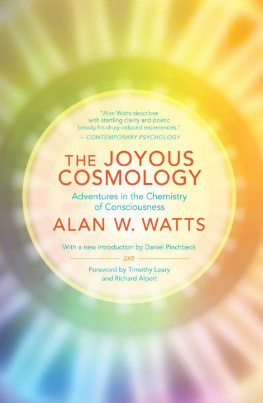
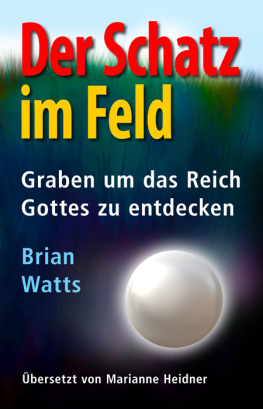

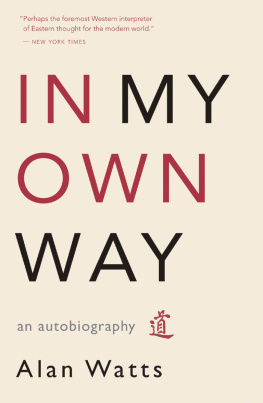
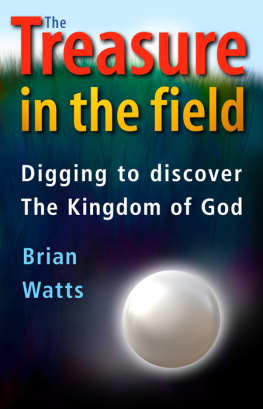
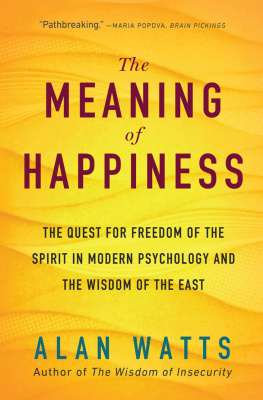
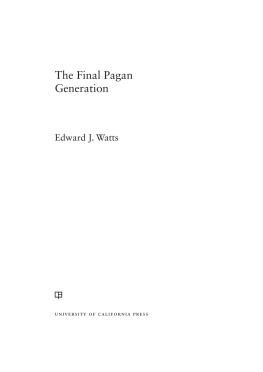

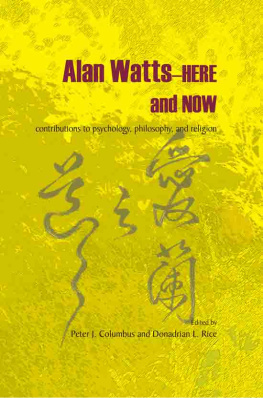
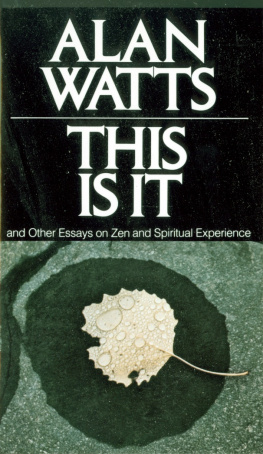
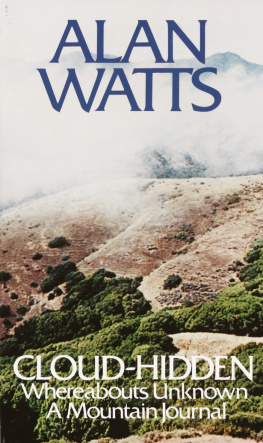
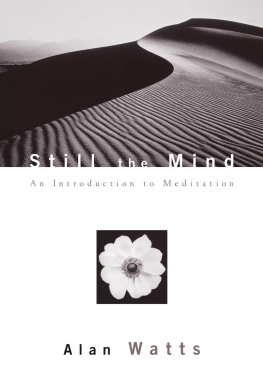


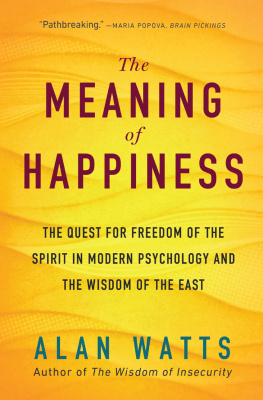
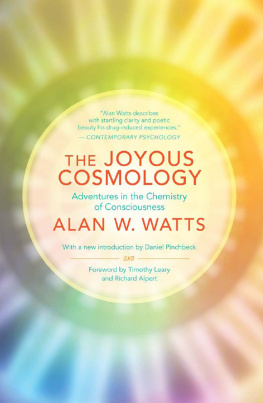




 New World Library is proud to be a Gold Certified Environmentally Responsible Publisher. Publisher certification awarded by Green Press Initiative.
New World Library is proud to be a Gold Certified Environmentally Responsible Publisher. Publisher certification awarded by Green Press Initiative.